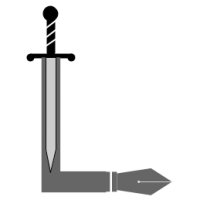1. The existing law relating to copyright is contained in the Copyright Act, 1911 of the United Kingdom (hereinafter referred to as the United Kingdom Act) as modified by the Indian Copyright Act, 1914. Apart from the fact that the United Kingdom Act does not fit in with the changed constitutional status of India, it is necessary to enact an independent self-contained law on the subject of copyright in the light of growing public consciousness of the rights and obligations of authors and in the light of experience gained in the working of the existing law during the last forty years. New and advanced means of communications like broadcasting, litho-photography, etc., also call for certain amendments in the existing law. Adequate provision has also to be made for fulfilment of international obligations in the field of copyright which India might accept. A complete revision of law of copyright, therefore, seemed inevitable, and the Bill attempts such a revision.
2. Though the draft Bill follows generally, in a re-arranged form the main principles of the existing law, it has introduced several new features which are briefly indicated below:
(1) A Copyright Office is sought to be established under the immediate control of a Registrar of Copyrights who shall act under the superintendence and direction of the Central Government. The principal function of the Copyright Office will be to maintain Register of Copyrights in which may be entered, at the option of the authors, the names and addresses of authors and owners of copyright for the time being, and other relevant particulars. Such Register will easily make available useful information to interested members of public in regard to copyrighted works. In order to encourage registration of copyrights, provision is made that no proceeding regarding infringement of copyright shall be instituted unless copyright is registered in the Copyright Office. In addition to being in charge of the Copyright Office, the duties of the Registrar of Copyrights will be to entertain and dispose of applications for compulsory licences and to inquire into complaints of importation of infringing copies. An appeal to the Copyright Board is provided for against the orders of the Registrar of Copyrights.
(2) Provision is made for setting up a Copyright Board which will determine the reasonableness of the rates of fees, charges or royalties claimed by Performing rights societies, consider applications for general licences for public performances of works and will assess compensation payable under the Bill in certain circumstances. An appeal will lie to the High Court against the decisions of the Copyright Board.
(3) The definition of “copyright” is enlarged to include the exclusive right to communicate works by radio-diffusion.
(4) A cinematograph film will have a separate copyright apart from its various components, namely, story, music, etc.
(5) An author assigning copyright in his work is allowed the option to re-acquire the copyright after seven years but before ten years of the assignment on the condition that he returns the amount received by him at the time of the assignment with interest thereon.
(6) The normal term of the copyright is fixed to be the life of the author and a period of 25 years after his death as against the existing term of the life of the author, and a period of 50 years after his death. Shorter terms are fixed for anonymous or pseudonymous works, cinematograph films, mechanical contrivances, photographs, etc.
(7) Under the existing law, the sole right to produce a translation of a work first published in India is extinguished after ten years, unless a translation thereof is produced with in that period. The Draft Bill makes the right co-extensive with other rights arising out of copyright.
(8) Provision is made for the issue of a general or special licence for public performances of any work by means of a radio-receiving set or a mechanical contrivance.
(9) A licence may be issued to any library to make or cause to be made one copy of any book in which copyright subsists and which is not available for sale.
(10) Provision is made for regulating the activities of performing rights societies and also for controlling the fees, charges or royalties to he collected by them.
(11) Certain rights akin to copyright are conferred on Broadcasting authorities in respect of programmes broadcast by them.
(12) International copyright relations which are based on international treaties will be regulated by specific orders to be made by the Central Government.
(13) A fair dealing with any work for the purposes of radio summary or judicial proceeding will not hereafter constitute an infringement of copyright.
3. In preparing the Bill, the British Copyright Report, 1952, the suggestions of various Ministries of the Government of India, the State Governments, the Indian Universities and certain interested industries and associations, who were invited to send their comments on the subject, have been taken into consideration.
